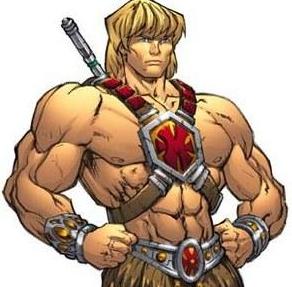January 2010 Archives
 It's taken me awhile to get around to this -- busy, busy, busy -- but Katie Roiphe wrote an essay, "The Naked and Conflicted," for the cover of last Sunday's New York Times Book Review. It's an essay that's generated a great deal of online talk because in it, Roiphe looks back with a certain wistful fondness for the old
caveman sexuality of the earlier generation of leading American white male
novelists (Roth, Mailer, Updike).
It's taken me awhile to get around to this -- busy, busy, busy -- but Katie Roiphe wrote an essay, "The Naked and Conflicted," for the cover of last Sunday's New York Times Book Review. It's an essay that's generated a great deal of online talk because in it, Roiphe looks back with a certain wistful fondness for the old
caveman sexuality of the earlier generation of leading American white male
novelists (Roth, Mailer, Updike).
They were the boundary-breaking 'bad boys' who -- however negligible it is as an ontological proposition -- exalted sexual conquest as a defining activity. Let's imagine them all as a kind of writerly version of Jack Nicholson. In contrast, the newer batch (David Foster Wallace, Michael Chabon, et al) are the insecure nice guys who doubt that chest-thumping and skirt-chasing should define their existence as men. They're the self-conscious nice guys whom feminists like Roiphe now seem a little fed up with. No grand flights of lust-filled poetic fancy from them. So let's imagine them as John Cusack.
Actually, I would posit a different way of distinguishing Ms. Roiphe's two
groups. The new guys -- at least in their fictional male protagonists --
seem to care about what their female bed-mates think, desire,
hope for, derive pleasure from. The older ones seem far more selfish. In this, Roiphe has missed the crux of David Foster Wallace's attack on John Updike's approach to sex in his male characters. Simply put, the Updike character's crude-ish thinking on sex in no way matches Updike's own super-subtle thinking about other areas. Consequently, Updike's fiction repeatedly conveys the attitude that sex is something a man takes or cheats out of a woman -- for him, sex is barely worth considering in depth outside of his own obsession. Hence, Foster Wallace's conclusion that Updike's (repeated) attitudes toward sex suggest something deeply unpleasant about him.
Yet Ms. Roiphe
longs for some of that old, lust-filled transcendence,
both emotional and literary, and seems to think this is the only way it arrives. One wonders how such transcendence (literary and sexual) is achieved when it comes with a lack of respect, but then, that's how some people like it. Apparently, though, Ms. Roiphe still wants to be
desired and fought for but not denigrated or dismissed.
So we're back with what do women want? And for Ms. Roiphe, it
would seem they want that traditional, bifurcated being: a gentleman at the dinner
table, a Visigoth in the bedroom. She wants Nicholson and Cusack.
Good luck finding and keeping such a creature -- because he's more or less a fantasy, much like the male fantasy of the happy, lust-filled bimbo who will deliver a beer and then disappear. There's no problem with fantasy figures provided they're recognized as such and we understand what this fantasy says about us. But Roiphe never recognizes the fantasy element in her argument at all. To put it in a more literary, less Hollywood way, she wants a feminist Philip Roth. As I said, good luck with that.
A version of this was sent to the NYTimes Paper Cuts blog.
